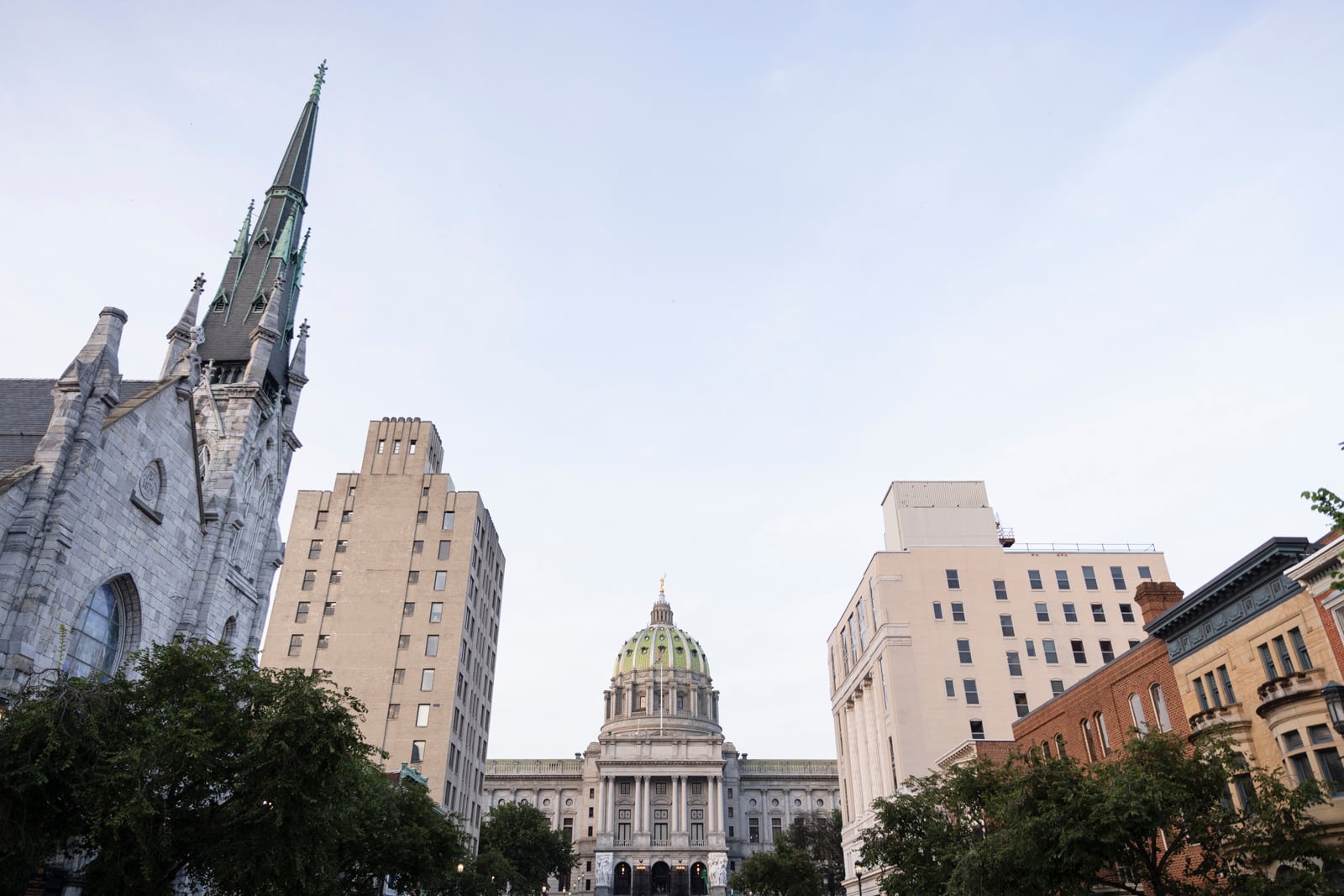Days away from the proposed SEPTA cuts, Pennsylvania’s transit future is taking center stage in public discourse in a way that is rarely the case with state budget issues. In fact, the matter may become a major focus of the state’s 2026 midterm elections.
Cuts will almost certainly be a factor up and down the ballot if they go into effect next week, as Democrats aim to hold onto the governor’s office and win the state Senate and the final GOP Congressional district in Southeastern Pennsylvania.
In Harrisburg, Democrats and Republicans have been exchanging accusations for weeks about who is to blame for the upcoming fee hike of 21.5% and 20% service cuts, which are some of the biggest SEPTA fare increases in decades. However, Democrats are already getting ready to take advantage of the cuts in the event of a midterm election, which they already perceive as a chance.
People attempting to get to work, children going to school, or sports fans coming to the city for a game would be severely hampered by reduced service on Regional Rail lines, bus routes being terminated, late-night metro routes being canceled, and worse traffic. Democrats in the Southeast want to link the suffering of commuters to the collar counties’ vulnerable Republicans, whom they now hold responsible for the deadlock.
In Harrisburg, State Representative Malcolm Kenyatta (D., Philadelphia) stated of his Republican colleagues, “I think these folks are going to pay a short-term political price.” I hope everyone knows who did this when they attend the Eagles game and are unable to leave without having to wait six hours for an Uber.
In a preview of a Democratic assault that transcends political contests, Kenyatta, who is also the vice chair of the Democratic National Committee, linked the SEPTA cuts more generally to dissatisfaction with President Donald Trump’s slash-and-burn strategy of shrinking the federal government and Congress’ recent approval of Medicaid cuts in the One Big Beautiful Bill.
According to Kenyatta, SEPTA is really the Republican state counterpart of the federal ineptitude.
Keep an eye on the state Senate
Flipping the state Senate, which has been controlled by Republicans for 31 years, is the top priority for Democrats. When half of the 50-member state Senate is up for reelection in 2026, Democrats, who currently hold the governorship and the state House, will only need to flip two seats to tie control of the body after eroding the GOP’s sizable majority in recent elections.
Both Sen. Tracy Pennycuick (R., Montgomery) and Sen. Frank Farry (R., Bucks) are seeking reelection in 2026.
Additionally, Democrats are preparing to remove Sen. Joe Picozzi (R., Philadelphia), a freshman who won a seat in Northeast Philadelphia last year but won’t be up for election again until 2028.
Neil Makhija, a Democrat who serves as the chair of the Montgomery County Board of Commissioners, stated, “I don’t believe a single person voted for their state legislators asking them to make traffic worse.”
However, any attempt to politicize the SEPTA discussion would fail, according to Senate President Pro Tempore Kim Ward (R., Westmoreland), since the cuts will disproportionately harm Democratic constituents, who are primarily centered in Philadelphia and the collar counties that SEPTA serves, compared to GOP ones.
According to Ward, they are playing their hand too much and doing so at their own risk. Since their people are more impacted than ours, the majority of these Democratic representatives must be extremely certain that they will never be selected for a primary.
Republicans in the Senate also point out that Democrats have controlled both the governor’s office and the House but have failed to resolve the issue of transit financing. Some have even conjectured that Democrats turned down workable budget proposals because they believe a shutdown would benefit their political agenda.
Pennycuick, the Republican who represents Montgomery and Berks Counties, stated in a text message that some of the loudest comments come from politicians who are attempting to advance politically without coming up with sound ideas.
In Facebook and Instagram advertisements, at least one Democratic-affiliated political action committee has been accusing the three senators from Southeastern Pennsylvania of abandoning SEPTA riders. According to Meta’s ad library, the PAC Better PA has spent over $4,600 on the posts since May.
Accusing the three Republican state senators from the suburbs of Pennsylvania of not doing enough to stop the cuts, the Pennsylvania Senate Democratic Campaign Committee began sharing pictures of them on social media. Old enough to understand. One message aimed at 30 year old Picozzi claimed that he was “young enough to sell Philly out.”
Their actions are obviously well-planned. Farry said, “That tells me it’s political.” It speaks something about the nature of the participants in this argument if the Democrats’ objective of changing the Senate is more significant than the interests of SEPTA employees and riders.
The Senate Democrats campaign arm chair, state senator Vince Hughes (D., Philadelphia), called the charge that his party is dragging its feet for possible political advantage completely untrue, pointing out that during the past two legislative sessions, House Democrats have passed funding for mass transit five times. (The same funding mechanism, which the Senate GOP has resisted for years, was included in each proposal: a bigger share of the state’s sales tax would be used for mass transit.)
Hughes also said that the Senate GOP is putting its members in a difficult political position.
Why would they encourage their own members to vote in favor of a measure that would require fare hikes indefinitely, divert funds from Southeastern Pennsylvania, and distribute them throughout the state rather than spending them here? Hughes enquired. Why would they request that their own members cast a negative vote?
For the time being, Democrats are striking a balance between criticizing Republicans in the run-up to the midterm elections and maintaining that a funded SEPTA is the ultimate objective.
According to State Senator Steve Santasiero, a Democrat who represents portions of Bucks County and serves as the chair of the Bucks County Democratic Party, the policy piece always comes before the political side.
However, Santasiero conceded that Republicans’ handling of SEPTA might make it easier to flip the Senate, particularly in light of the growing rural-urban divide between the Philadelphia region and the rest of the state.
People will begin to see that and ask themselves, “Hey, hold on a second. If that’s their attitude, why do they have a say in this?” “I said.”
By holding two protests at his office in Northeast Philadelphia this week, Picozzi has already come under fire from his constituents.
Attack ads against him, according to the rookie member who unexpectedly defeated a Democratic-held seat in November, were damaging our city’s results.
However, he rejected the idea that SEPTA would become a factor in his reelection in the near future. The majority of sensible people are aware that I am a freshman senator, and I believe that people are tired of political theater. Nothing can be brought to the floor by me. They cannot be made to vote on anything by me.
Democratic Governor Josh Shapiro, Senate Majority Leader Joe Pittman (R., Indiana), and House Majority Leader Matt Bradford (D., Montgomery) are at the negotiation table behind closed doors over the state budget.
Politically, the problem also looms for Shapiro. As the governor of a divided state legislature, he has established a reputation for being able to collaborate with both parties to find solutions to issues. His reputation might be harmed for his reelection campaign the next year and possible 2028 presidential run if he is unable to secure an agreement for his home region.
Republican state treasurer Stacy Garrity, who declared on Monday that she was officially challenging Shapiro, criticized Democrats for turning down the Senate GOP’s SEPTA funding proposal.
Linking SEPTA to congressional elections
The issue is already influencing a significant suburban congressional campaign, even though members of Congress have little say in how the state distributes its transit spending. His relative absence from the conversation has been pointed out by Democrats seeking to unseat U.S. Rep. Brian Fitzpatrick, the only Republican in the U.S. House representing Southeastern Pennsylvania.
According to DCCC spokesperson Eli Cousin, Fitzpatrick doesn’t deserve to represent the families of Bucks and Montgomery in Congress if he won’t even return home to fight for SEPTA money.
The Montgomery County Democratic Party head Jason Salus contended that a single call to Farry by the Republican congressman may influence discussions. Fitzpatrick served as Farry’s best man during his wedding, and the two represent the same region.
Salus remarked, “I have a suspicion that he would pay attention if Congressman Fitzpatrick called and told him that this is too important to let go.”
Farry retorted that Bucks County Commissioner Bob Harvie, a Democrat running against Fitzpatrick, is a member of the SEPTA board.
Farry continued, “This only demonstrates their lack of seriousness on the matter and their attempts to hide for Fitzpatrick’s opponent.”
The GOP campaign arm for U.S. House races, the National Republican Congressional Committee, has also attempted to suggest that Fitzpatrick’s likely opponent, Harvie, is somehow to blame for the struggling agency’s financial situation.
“Bob Harvie is attempting to secure more money for an organization that he runs, by whining and complaining and without making his involvement clear to voters,” Maureen O Toole, a spokesperson for the NRCC
Harvie referred to the insults as “idiotic” in an interview with the Inquirer.
Harvie stated that when he talks about SEPTA’s financial difficulties, he has brought up his position on the board. “These issues existed when I got there,” he added.
When questioned about Fitzpatrick’s preferred solution to the SEPTA deadlock and possible political repercussions, his staff did not explicitly respond. Instead, the federal senator is against any changes to SEPTA, according to a spokesperson, Casey Lee Waldron. He anticipates a bipartisan deal from the SEPTA board and state leaders that ensures full funding and continuous operation. Less is not acceptable.
According to Waldron, transit is too crucial to Pennsylvania’s economy and families to be enmeshed in political stalemate.






